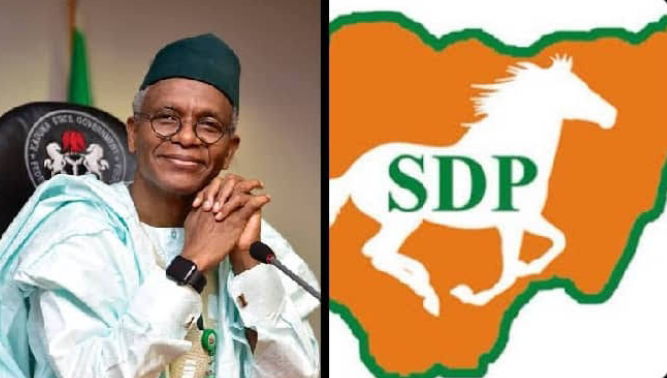Legal efforts to disqualify Tinubu from the February 2023 election
Published on 2022 November 22, Tuesday Back to articles
Bola Ahmed Tinubu – under increasing pressure
Opponents of Bola Ahmed Tinubu, the presidential candidate of the All Progressives Congress (APC), are exploring multiple legal options to disqualify him from running in Nigeria’s February 2023 election. In criminal complaints filed on 9-10 November at a court in Abuja, lawyer Mike Enahoro-Ebah asked the court to disqualify Tinubu on the grounds of forgery, age falsification, and perjury.
The filing alleges that documents obtained by subpoena from Chicago State University (CSU) where Tinubu is said to have studied accountancy in the 1970s, are materially different from those that he submitted to the Independent National Electoral Commission (INEC).
A related complaint alleges that a transcript obtained from Southwest College in Chicago — which was used by Tinubu to apply for admission to CSU in 1977 — identifies the candidate as female.
No date has been set for hearing, but the opposition People’s Democratic Party (PDP) is also asking INEC to act on evidence showing that Tinubu was forced to make a criminal forfeiture of US$460,000 to the US authorities in 1993, which was said to be the proceeds of narcotics smuggling traced to his bank account in Chicago.
His campaign spokesperson Festus Keyamo has denied that Tinubu was ever convicted, and insisted that the forfeiture was tax-related despite a document from the Illinois court clearly identifying him as a defendant. The court documents also identify him as being 58 at the time, which would make his current age 87 instead of the 71 he currently admits to.
Another shadow from Tinubu’s past stems from his assertions under oath while running for the governorship of Lagos State in 1999. At the time, he said that he had attended St Paul’s Primary School and Government College, both in the southwestern city of Ibadan, before entering Chicago University. Those claims were challenged at the time as false.
In his filing for the 2023 election, Tinubu listed Chicago State University as the only educational institution he has ever attended, prompting allegations of perjury.
Meanwhile Tinubu has also been making a series of unforced speech blunders on the campaign trail which have unintentionally turned him into a social media star. These blunders — which have primarily involved difficulties in pronouncing specific words or making meaningless statements — have drawn further attention to concerns about his health. These mistakes are being made despite him having been reading from prepared speeches and also at events which have been closely scripted to avoid such errors. In the past week he has admitted that he avoids social media because of the effect it has on his blood pressure.
The options on the table
Nigeria’s 1999 Constitution provides that a person convicted by a competent court of law in Nigeria or any other ‘competent authority’ for any offence related to dishonesty and fraud is disqualified from the presidency. INEC is nonetheless unlikely to uphold rescind Tinubu’s candidacy unless it receives a valid order to do so, issued by a Nigerian court.
‘All options are on the table,’ PDP spokesperson Debo Olugunagba said at a news conference last week. ‘It is no longer news that the presidential candidate of the APC, Asiwaju Bola Ahmed Tinubu, is irredeemably and hopelessly ineligible to contest.’
Casting a wider net
As well as taking Tinubu to task on the drugs-related forfeiture, as well as alleged forgery and age falsification, the PDP is seeking to disqualify all APC candidates on the grounds that the processes that produced them were in violation of the Constitution and electoral laws.
The suit — which was filed by the PDP at a Federal High Court in Abuja last week — hinges on Yobe State’s Governor Mala Buni’s time as caretaker APC chair. The Constitution stipulates that a serving governor shall not hold ‘any other executive office, in any capacity whatsoever.’
A September Federal High Court ruling nullified all actions taken by the Buni-led committee, including party congresses that produced the delegates who chose APC candidates for the coming election. Relying on this law, other courts have nullified the selection of APC candidates in Ekiti, Adamawa, Rivers, and Osun states.
The PDP is now seeking a broader application of this law to nullify the APC chairmanship of Abdullahi Adamu because it was overseen by Buni. The case came up for preliminary hearing before Justice Inyang Ekwoh of the Federal High Court in Abuja on 22 November.
While all the cases tied to this constitutional provision are likely to go to the Supreme Court for final determination, they have raised the stakes for the APC. Barring its candidates on a national scale would be unprecedented and would leave Atiku Abubakar of PDP, Peter Obi of the resurgent Labour Party, and Rabiu Kwankwaso of the New Nigeria People’s Party as the frontrunners.
That would upend all current permutations of the presidential race and leave APC supporters restive. The incumbent party might then seek any excuse to scupper the election.
This excerpt is taken from Nigeria Focus, our monthly intelligence report on Nigeria. Click here to receive a free sample copy.The November 2022 issues of Nigeria Focus also includes the following:
Spotlight
- Abuja on alert: Diplomats flee amid terrorism threats
Energy
- Supertanker crew charged
- Oil output expected to rise
- Addax exit is NNPC’s gain
- A new hydro-electric plant
Politics & Society
- Disqualifying Tinubu?
- Fresh charges against Kanu
- New front in the Southwest
Special feature
- The election umpire
Economy & Finance
- CBN Governor Emefiele redesigns the Naira
- Edging toward junk territory
- Vice President Yemi Osinbajo on currency management
- Signs of deepening poverty



